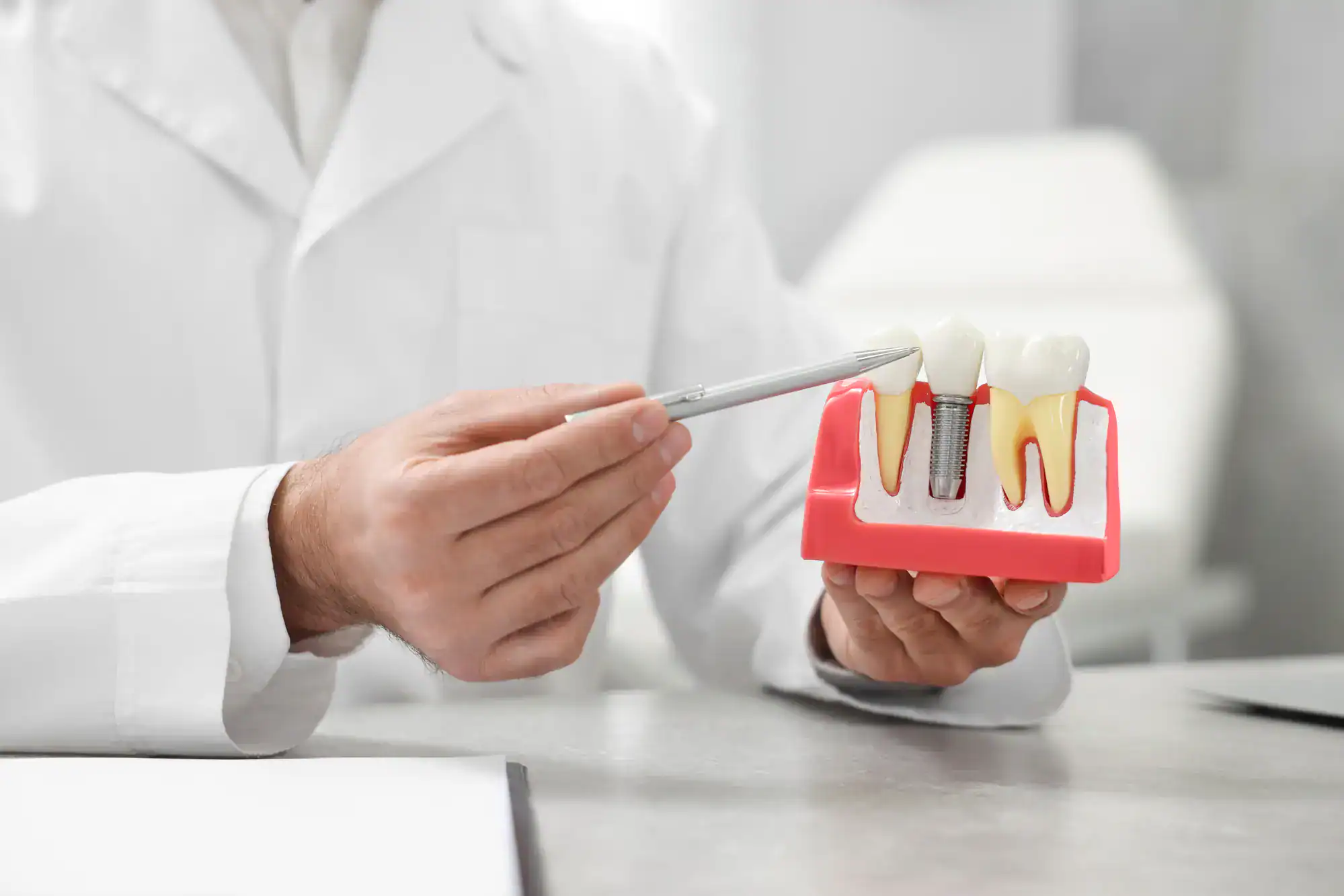
Hear from Our Customers

You’ll eat steak again without worrying about slipping dentures. You’ll smile in photos without covering your mouth. You’ll speak clearly in meetings without lisping or clicking sounds.
Our dental implants in Red Oaks Mill give you back the simple pleasures you’ve been missing. No more avoiding certain foods or feeling self-conscious about gaps in your smile. Your new teeth stay put, look natural, and let you live normally again.
The best part? Once your implants heal, you’ll forget they’re not your original teeth. They integrate with your jawbone, preventing the bone loss that makes your face look sunken over time.
Dr. Scott Kupetz has been placing dental implants for Red Oaks Mill residents and throughout Dutchess County for years. We understand that losing teeth affects more than just your mouth—it impacts your confidence, your social life, and your daily comfort.
Located conveniently for patients throughout the Hudson Valley region, we combine advanced implant techniques with a straightforward approach. No overselling, no pressure—just honest conversations about your options and realistic timelines for getting your smile back.
Our practice focuses on making the implant process as smooth as possible, from your initial consultation through your final restoration.

First, you’ll come in for a comprehensive consultation where Dr. Kupetz examines your mouth, takes X-rays, and discusses your goals. We’ll explain exactly what’s involved and answer your questions about timing, cost, and what to expect.
If you’re a good candidate, the implant placement happens during a straightforward procedure under local anesthesia. The titanium implant goes into your jawbone where your tooth root used to be. Most patients return to work the next day with minimal discomfort.
Over the next 3-6 months, your implant fuses with your bone in a process called osseointegration. Once that’s complete, Dr. Kupetz attaches your custom crown, bridge, or denture. The result is a tooth that functions exactly like your original—because as far as your mouth is concerned, it is your tooth.

Ready to get started?
Whether you need a single tooth implant, multiple implants, or full mouth reconstruction, we provide comprehensive implant services for Red Oaks Mill patients. Single tooth implants replace individual missing teeth without affecting your healthy adjacent teeth.
For patients missing several teeth, implant-supported bridges offer a stable, permanent solution. Those facing full tooth loss can benefit from All-on-4 implants or implant-supported dentures, which provide the stability of implants with the convenience of replacing all teeth at once.
Each treatment plan is customized based on your bone density, oral health, and personal preferences. We use advanced imaging technology to plan your implants precisely, ensuring optimal placement and long-term success. Most implants come with warranties and are designed to last decades with proper care.

Single dental implants typically range from $3,000 to $5,000, including the implant, abutment, and crown. Full mouth implant solutions like All-on-4 range from $15,000 to $30,000 per arch, depending on your specific needs and the materials used.
Many dental insurance plans cover a portion of implant costs, especially when implants are replacing teeth that were recently extracted. Our office works with most insurance providers and offers financing options to make treatment affordable.
The cost reflects the long-term value—while implants have a higher upfront cost than dentures or bridges, they typically last 20-30 years or longer, making them more cost-effective over time.
The complete dental implant process typically takes 3-6 months from start to finish. The initial implant placement appointment takes about 1-2 hours, and most patients return to normal activities within a few days.
After placement, your implant needs time to integrate with your jawbone—usually 3-4 months for lower teeth and 4-6 months for upper teeth. During this healing period, you’ll have a temporary tooth replacement if needed.
Once integration is complete, creating and placing your final crown takes 2-3 additional weeks. Some patients qualify for immediate placement and temporary crowns, which can significantly reduce the overall timeline.
Most patients report that getting dental implants is less painful than they expected. The procedure itself is performed under local anesthesia, so you won’t feel pain during the placement. Many patients describe the discomfort level as similar to having a tooth extracted.
After the procedure, you might experience mild swelling and discomfort for 2-3 days, which responds well to over-the-counter pain medications and ice packs. Most patients return to work the next day and resume normal eating within a week.
We provide detailed post-operative instructions and are available for any concerns during your healing period. The key is following the aftercare guidelines to ensure smooth healing and minimize any discomfort.
Good candidates for dental implants have sufficient bone density to support the implant and healthy gums free from periodontal disease. Most adults who have lost teeth due to decay, injury, or gum disease can receive implants successfully.
Age isn’t typically a limiting factor—we’ve placed implants for patients in their 80s and 90s. More important factors include overall health, non-smoking status, and commitment to good oral hygiene. Certain medical conditions like uncontrolled diabetes may require additional evaluation.
If you don’t have enough bone for implants initially, procedures like bone grafting can often make you a candidate. We evaluate each patient individually and discuss all options during your consultation, including alternatives if implants aren’t suitable.
Caring for dental implants is straightforward—brush and floss them just like your natural teeth. Use a soft-bristled toothbrush and non-abrasive toothpaste to clean around the implant crown. Flossing or using interdental brushes helps prevent plaque buildup around the implant.
Regular dental checkups and cleanings are essential for long-term implant success. We monitor your implants during routine visits and can catch any potential issues early. Professional cleanings remove plaque and tartar that regular brushing might miss.
Avoid habits that can damage implants, such as chewing ice, using teeth as tools, or grinding your teeth at night. If you grind your teeth, a nightguard can protect both your implants and natural teeth. With proper care, most implants last decades without complications.
Dental implants have a success rate of over 95%, making failure relatively uncommon. When failures occur, they’re usually due to infection, insufficient bone integration, or excessive force on the implant during healing. Smoking significantly increases the risk of implant failure.
Early failures typically happen within the first few months and often result from infection or failure to integrate with the bone. Late failures can occur years later, usually due to gum disease around the implant or mechanical issues with the crown or abutment.
If an implant fails, we can often place a replacement implant after the area heals. Sometimes bone grafting is needed before replacement. Most implant failures are covered under warranty, and alternative solutions like bridges or dentures remain available if replacement isn’t possible.
Other Services we provide in Red Oaks Mill